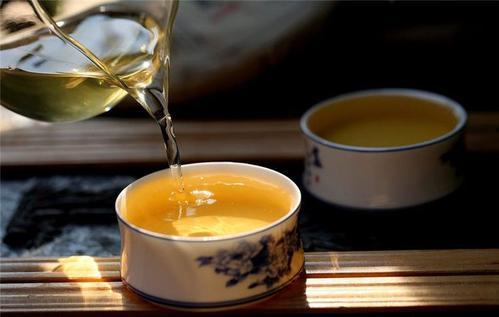卖茶叶的人要注意什么
Title: Key Considerations for Selling Tea
Selling tea can be both an art and a science, requiring an understanding of the product, the market, and the preferences of customers. Whether you're just starting or looking to enhance your teaselling business, here are some key considerations to keep in mind:
Understanding Your Product:
1.
Varieties and Origins:
Familiarize yourself with different types of tea, such as green, black, white, oolong, and herbal teas. Understand their flavor profiles, brewing methods, and health benefits. Also, learn about the regions where each type is cultivated and the unique characteristics they impart.2.
Quality Assurance:
Ensure that you source tea from reputable suppliers who prioritize quality and authenticity. Understand the importance of factors like freshness, leaf grade, and organic certifications, as these can influence the taste and appeal of your products.3.
Tasting and Evaluation:
Develop your palate by regularly tasting various teas. This will help you accurately assess the quality, flavor, aroma, and consistency of different blends. Consider organizing tasting sessions for your staff and customers to share your knowledge and create engaging experiences.Building Your Brand:
1.
Unique Selling Proposition (USP):
Define what sets your tea business apart from competitors. Whether it's offering rare and exotic blends, emphasizing sustainability practices, or providing personalized customer service, your USP will help attract and retain loyal customers.2.
Branding and Packaging:
Invest in visually appealing packaging that reflects the quality and elegance of your tea products. Consider ecofriendly options and ensure that your branding communicates your values and story effectively. Your packaging should not only protect the tea but also enhance its shelf appeal.3.
Online Presence:
Establish a strong online presence through an engaging website and active social media channels. Share educational content about tea, behindthescenes glimpses of your business, and usergenerated content from satisfied customers. Use online platforms to interact with your audience, gather feedback, and build a community around your brand.Customer Engagement:
1.
Education and Awareness:
Educate your customers about the nuances of tea, including its origins, processing methods, and health benefits. Host workshops, tastings, and seminars to deepen their appreciation and knowledge. Empower your staff to act as tea ambassadors who can guide customers in their selection process.2.
Personalized Recommendations:
Offer personalized recommendations based on customers' preferences, dietary restrictions, and occasions. Encourage them to explore new flavors and experiment with different brewing techniques. Build trust and rapport by providing honest and transparent advice tailored to their needs.3.
Feedback and Adaptation:
Actively seek feedback from your customers through surveys, reviews, and direct interactions. Use this feedback to identify areas for improvement, refine your product offerings, and enhance the overall customer experience. Stay agile and adaptable in response to changing trends and customer preferences.Regulatory Compliance:

1.
Quality Standards:
Ensure compliance with relevant food safety regulations and quality standards in your region. Stay informed about industry best practices, certifications, and labeling requirements to uphold the integrity of your products and inspire consumer confidence.2.
Ethical Sourcing:
Prioritize ethical sourcing practices by partnering with suppliers who adhere to fair trade principles, environmental sustainability, and labor rights. Conduct regular audits and inspections to verify compliance throughout your supply chain.3.
Risk Management:
Mitigate risks associated with product quality, storage, and transportation. Implement proper storage conditions, such as temperature and humidity control, to preserve the freshness and flavor of your teas. Develop contingency plans for unforeseen events, such as supply chain disruptions or regulatory changes.By integrating these considerations into your teaselling business, you can enhance the quality of your products, strengthen your brand presence, and cultivate lasting relationships with your customers. Embrace the artistry and tradition of tea while embracing innovation and adaptation to thrive in the dynamic marketplace.
版权声明
本文仅代表作者观点,不代表百度立场。
本文系作者授权百度百家发表,未经许可,不得转载。












评论